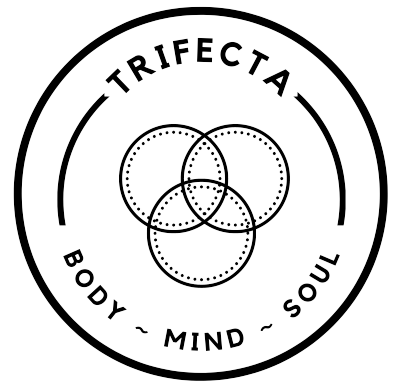By Laura Sliger
We just don’t often think of the thing that helps us think – until we have trouble thinking. When you think of taking care of your health, brain care may not be the first thing that comes to mind. We think of our aches and pains, cholesterol, blood pressure, immune system, weight management and everything else that our doctors check at our annual physical. Unless something starts showing up with our memory, our brains get little attention.
Why it Matters
But our brains make us who we are, without our memory we can no longer do and say the things that help us to live independently and make us uniquely us. I’m willing to bet that each of us knows someone, either closely or even more distantly, who has suffered from dementia or Alzheimer’s. For me, it’s very close – it’s my mom who has Alzheimer’s and to be honest – my mom is nowhere close to being the mom I’ve known all my life. I realize that the risk factor goes up for me. Here’s the recent facts though, 6.5 million people currently have Alzheimer’s and those figures are expected to triple by 2050.
The Hope Filled Message
This message of hope is one we are passionate about – it’s one we want to share with everyone! Research is beginning to show that prevention is the best way to reduce risk for cognitive decline. Even if you incorporate just SOME of the lifestyle changes suggested below, you lessen your risk factor.
5 Prevention Strategies and How They Impact Your Brain
Quality Sleep
You’ve heard it so much…”get good sleep.” But what exactly does sleep do besides make you well-rested and ready for the day? More specifically, what does it do for your brain?
- Did you know that during good, quality sleep your brain is actually taking out the garbage? The clinical name for this is your “Glymphatic System” – it is the system that your brain uses to clear neurotoxic waste produced in your brain. It’s like a carwash for your brain; cerebrospinal fluid washes in and out, removing the garbage. If not allowed to do it’s job (through lack of sleep) this waste can remain in your brain, contributing to cognitive decline.
- Did you also know that during sleep our brains consolidate and store memories into the different storage areas of the brain? It’s the neural connections made during sleep that form the connections that make our long-term memories.
Less Stress
It’s not uncommon to feel disorganized and forgetful when you are under a lot of stress, but over the long term, stress can actually change your brain.
There is a difference between acute stress and chronic stress. Acute is related to a specific event – you get in a fender bender and have to deal with all that entails. Chronic stress is something that you live with day in and day out – having a job in a toxic job and staying there for years on end or having a toxic relationship that never gets resolved.
- Chronic stress is the one that you want to become aware of and minimize in your life
- Chronic stress causes low-grade inflammation. In addition, it creates high cortisol levels which over time can damage the hippocampus.
- Have awareness of the stressors in your life & pay attention to your body’s reaction
- Create a stress management plan which includes developing boundaries and stress relief
- Prioritize Sleep! (There it is again!)
- Make good nutrition part of your plan – eating junk food & abusing alcohol can momentarily feel like relief but ultimately increase the inflammation
- Strive to change the way you think; practice gratitude and letting go
You may not be able to control all the stressful situations in your life, but you can manage your response. So you do have more control than you may think!
Get Moving
We know exercise is good for the body, but it’s also good for the brain.
- Exercise increases blood flow to the brain transporting nutrients and providing oxygen to keep it healthy
- Exercise promotes neuroplasticity, making new neural connections especially in the hippocampus (memory portion of your brain)
- Exercise helps reduce inflammation which is harmful to your brain
- Exercise produces the “feel good” hormones that promotes mental well-being and reduces stress
What’s the best kind of exercise? The kind you’ll do …
Challenge Your Brain
Keeping your brain active is an important piece of the puzzle – no pun intended. Many people think of doing Crossword Puzzles and playing games like Sudoku or even now the latest craze “Wordle”. But here’s what lights up your brain even more:
- Your Brain likes to learn new things – take up a course like photography, woodworking or even another language or learn more online about a topic that interests you – teach yourself
- Learn a new instrument- not only is it learning something new, playing an instrument enhances the neuronal communication between the left and right side of your brain
- Activities such as Table Tennis & dancing are super good for the brain. They combine aerobic activity with coordination to activate multiple areas of the brain
- Socializing keeps the brain stimulated and agile – so keep getting out with your friends
- Travel, especially to new destinations, is a good way to reduce stress, learn new things, and increase all your happy hormones
Premium Fuel
Your brain is ALWAYS running. Just like a car, it requires fuel to keep it running. Here’s why you want to make sure you are fueling it with premium nutrition:
- Inflammation: Eating unhealthy foods contributes to creating low-grade inflammation in the brain. Think Brain Fog, Mood Swings, Memory Decline, Insomnia, weight-gain – just to name a few
- Oxidation: When we eat foods loaded with sugar and unhealthy fats it causes oxidative stress to the brain as well. Oxidation damages brain cells and other healthy mechanisms within the brain leading to cell death, accelerated aging, and can set us up for chronic diseases.
The benefits are: Focus, higher brain functioning, better mood and reduced risk of a myriad of health concerns.
What’s to Lose?
Besides benefitting your brain and potentially decreasing your risk of Cognitive Decline, all of the strategies above will impact the rest of your health for the positive too – a win-win!



Follow Us